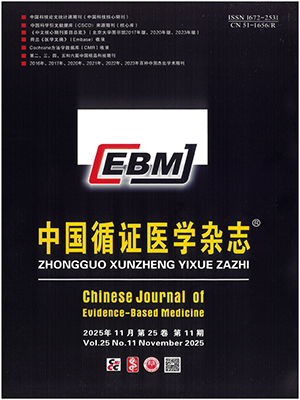Objective To evaluate the efficacy and safety of furazolidone-based first-line therapy for Helicobacter pylori infection.
Methods The randomized controlled trials (RCTs) of furazolidone-based first-line therapy for Helicobacter pylori infection were identified from Cochrane Library (Issue 1, 2009), PubMed (1992 to January 2009), OVID (1994 to January 2009), Wanfang Data (1994 to January 2009), CNKI (1994 to January 2009), and VIP Data (1994 to January 2009). The quality of included RCTs was assessed, and the meta-analysis was conducted with RevMan5.0 software.
Results Among five included RCTs involving 499 patients, four were graded as B in methodology quality and the left one was graded as C. As to the intention-to-treat (ITT) analysis, the Helicobacter pylori eradication rate was 78.3% in furazolidone group and 66.8% in control group (RR=1.18, 95%CI 0.86 to 1.62), while the Per Protocol (PP) analysis, the eradication rate of furazolidone group and control group was 83.1% and 70.9% respectively (RR=1.17, 95%CI 0.88 to 1.57). The incidence rate of mild side-effects was 40.8% in furazolidone group and 39.4% in control group (RR=1.03, 95%CI 0.79 to 1.36), and while that of severe side-effects in furazolidone group and control group was 7.8% and 3.7% respectively (RR=1.86, 95%CI 0.84 to 4.09).
Conclusions With similar efficacy and safety as control group has, the furazolidone-based therapy could be recommended as a first-line therapy for Helicobacter pylori infection. The high-quality RCTs with large sample are required to prove the above conclusion for the limitation of quantity and quality of included studies.
Citation: HUANG Xuan,LV bin,MENG Lina. The Furazolidone-based First-line Therapy for Helicobacter Pylori Infection: A Meta-analysis. Chinese Journal of Evidence-Based Medicine, 2010, 10(9): 1048-1052. doi: 10.7507/1672-2531.20100543 Copy
Copyright ? the editorial department of Chinese Journal of Evidence-Based Medicine of West China Medical Publisher. All rights reserved




